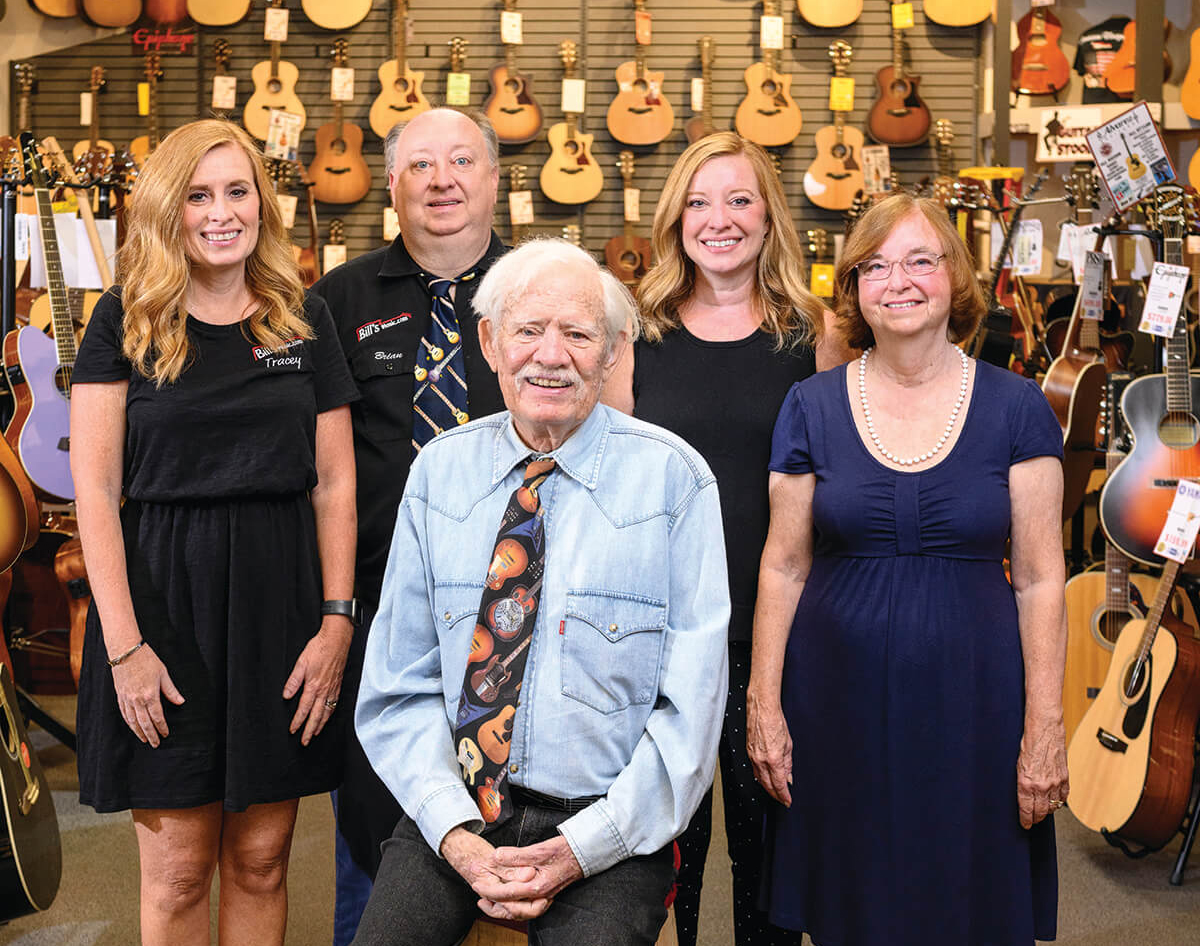
April 14, 2020 I Cover Story
11 Days of Pandemic
As the coronavirus hit the United States, the MI industry waded through chaos and responded swiftly. Here’s a snapshot of how companies were dealing with the early days of the coronavirus sweeping across the nation.
By Daniel Margolis, Frank Alkyer
Covid-19, or the coronavirus, slowed the world to a halt in many ways this winter and spring. Originating in China, then spreading throughout Europe, particularly Italy, coronavirus hit the U.S. in late January and by mid-March had largely changed the way life functions.
The virus forced entire countries under quarantine, borders closed, cities and communities isolated citizens and companies closed their doors. On March 16, President Trump and the Centers For Disease Control and Prevention (CDC) recommended people avoid gatherings of more than 10 people. Many states went into lockdown, with only essential businesses allowed to remain open, and citizens were strongly encouraged to remain indoors.
CANCEL EVERYTHING
The pandemic swept through the MI trade show circuit rapidly. On March 3, Adam Hall Group pulled out of participation in Prolight + Sound 2020, scheduled for March 31-April 3 in Frankfurt, Germany. Prolight + Sound later called off the event. Co-located trade fair Musikmesse Frankfurt was canceled as well. On March 10, in response to the coronavirus outbreak, media technology company Avid canceled participation in all trade conferences and other large face-to-face events globally, including the 2020 NAB Show, which canceled its event a few days later. Other manufacturers and associations made similar decisions.
The National Association of School Music Dealers (NASMD) canceled its 2020 convention scheduled for late March. The Retail Print Music Dealers Association (RPMDA) followed, canceling its 2020 convention scheduled for late April.
Coronavirus hit music festivals and touring just as hard and fast. At press time, the SXSW Conference & Festivals and Glastonbury Festival canceled. Coachella Valley Music & Arts Festival, Stagecoach Festival, New Orleans Jazz & Heritage Festival and Bonnaroo postponed. While artists and bands ranging from Bob Dylan to Three 6 Mafia postponed or canceled tours, Live Nation decided to postpone all of its tours through the end of March. Venues as large as New York City’s Carnegie Hall and as small as Chicago’s The Hideout shut down.
This was bad for music and everyone connected with it, particularly those who make it their livelihood. So, where did it leave MI? Music Inc. spoke with suppliers and retailers to check in on the state of their companies and businesses as the crisis unfolded in the U.S.
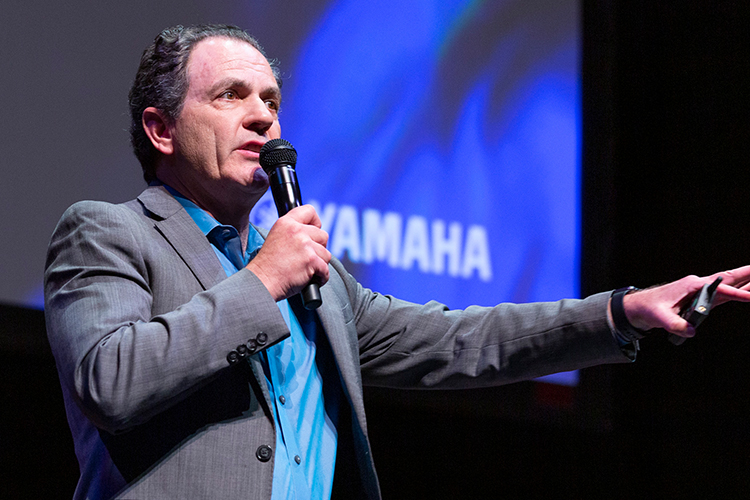
March 10—Tom Sumner, President, Yamaha Corp. of America
Speaking with Music Inc. as the coronavirus became more widespread on American shores—just a day after the Grand Princess cruise ship docked in Oakland, California, under coronavirus quarantine—Tom Sumner, president of Yamaha Corp. of America, reported the company was taking steps to ensure its staff’s safety, such as having workers attend meetings via teleconference from their desks and limiting the number of visitors at company headquarters in Buena Park, California.
“We stopped international travel quite early on,” he said. “We’re definitely concerned about having folks someplace trying to get back into the States and having to spend a nice two-week vacation at a military base somewhere.”
According to Sumner, Yamaha had lost some productivity at its Chinese factories and was seeing shipments out of the country delayed. “But our factories are back up and we’re running at basically 100% at this point,” he said. “China’s nowhere near 100% of our supply chain.”
Before the wave of cancellations swept through MI trade shows, Yamaha issued guidelines for its staff exhibiting. “A lot of the stuff we do as a music company, I don’t want to say it’s a petting zoo, but people want to try instruments,” Sumner said. “Previously, we were always really nuts about if somebody tried out of a recorder, you get out swabs and make sure that the instrument is clean after somebody tries it. And at this point we switched to, no, they’re not trying it at all. It’s literally not worth it.”

March 10—Saul Friedgood, President, Eastman Music Company
This year, Chinese New Year celebration was scheduled for Jan. 25 to Feb. 8. People in China tend to go on vacation during this time. “It’s like our New Year’s and Christmas kind of rolled into one,” said Saul Friedgood, president of Eastman Music Company, which has three manufacturing facilities in the Beijing area. “They go home to visit their families and spend time with them. We shut down for about three weeks, and then everyone got quarantined. We were just able to start coming back to work really last week.”
Eastman lost a month of production, and the situation hit the company’s guitar manufacturing team even harder, as a majority of it is from the Hubei province. Wuhan, which is where the virus is thought to have originated, is the capital of Hubei. At the time of this writing, the guitar team remains under quarantine, and Eastman faces a loss of two or more months of production.
“But for us, nobody’s gotten sick in our company,” Friedgood said. “That’s the gift. We just look at this as a crazy time.”
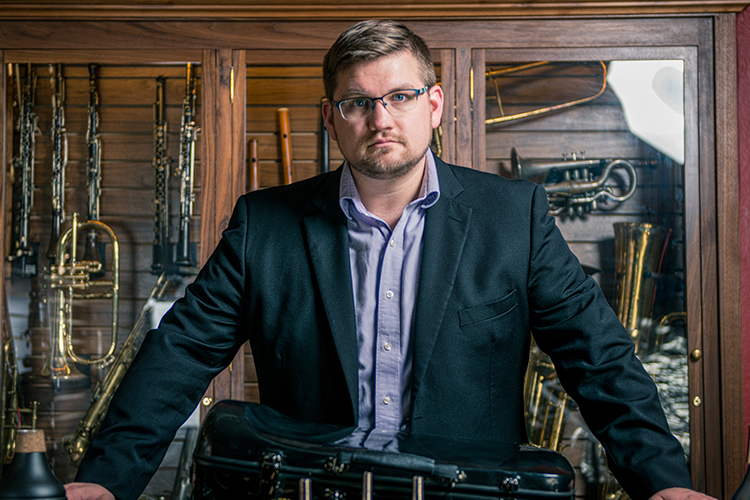
March 10—Steve Johnson, Owner, Virtuosity Musical Instruments
Virtuosity Musical Instruments is a woodwind and brass wind specialty store surrounded by colleges and universities with busy music departments in Boston. As schools across the U.S. were canceling classes, owner Steve Johnson admitted this might impact foot traffic in his store but saw an opportunity there to pivot to e-commerce to mitigate damage.
Johnson had not seen any supply chain issues for his shop and didn’t anticipate the virus posing a problem.
“It’ll be minimal, and we’ll have a chance to pivot to an alternate product if we do see that,” he said.
Unlike Yamaha, Virtuosity doesn’t have the option of halting potential customers trying out instruments. “Where we excel is being able to work with people one-on-one in a trial situation,” he said. “So, if anything, it would just increase our vigilance on sanitization and cleaning.”
Johnson commented on people’s general reaction to the coronavirus balanced against the, at times, frantic tone of media coverage of it. “One feeds the other, unfortunately,” he said. “I do feel that it’s something that’s being a little overhyped. Obviously I don’t blame people for being cautious. But, in general, I think that things should find a way to be OK.”

March 12—Whitney Brown Grisaffi, President, Ted Brown Music
For Whitney Brown Grisaffi, the coronavirus has been challenging on two fronts. First, as president of Ted Brown Music in Washington state, Brown Grisaffi has been dealing with a variety of business challenges raised by being located in one of the first areas in the U.S. to truly bear the brunt of the virus.
As a retailer with deep ties to the school music market, Ted Brown Music was in the beginning stages of its spring season, when students have an opportunity to try out several instruments and sign up to be in their school band program for next year. It’s also a prime time for student musicians to step up to renting or purchasing better instruments to fit their skill level.
As the virus spread, and schools and universities in the state began to close, those programs had to be cancelled, too.
Brown Grisaffi is also currently serving as president of NASMD and had to make the difficult call to cancel the event for the first time in its 58-year history.
“With the presidential address on television and Florida’s governor declaring a state of emergency and the World Health Organization (WHO) declaring this a pandemic, it was the socially responsible thing to do,” she said.
That done, she and her leadership team turned to how Ted Brown Music, a six-store chain, would operate through this difficult period. Even when normalcy returns, Grisaffi Brown said it would be a while before students are allowed to fully try out and blow into instruments.

March 12—Kim Koch, Music School Director, Saied Music
At Saied Music, a six-store chain with locations in Oklahoma, Arkansas and Texas, business was moving forward even with the rapidly changing news.
“Every hour, my phone has been ringing with closings and postponements,” said Kim Koch, the Saied music school director. “We have two confirmed cases here, but a lot of reaction. Our spring break is next week, so our public schools are just gritting their teeth and trying to get to the break. So, we don’t have any school closings yet, but all of our universities in the state have gone to close for spring break and stay closed until April 1.”
Koch said the company was preparing to go into a contingency meeting the next morning.
“What we’re doing is we’re going to meet tomorrow and identify what our necessary operations are and make sure we’ve got very clear documentation for those operations,” she said. “Then, maybe do some fire drills for what it would look like if we had a skeletal staff and what it would look like to do those operations remotely.”
Koch noted that she did get an email that day from Steinway asking retailers to vote on whether they wanted to postpone or cancel the Steinway Junior Piano Competition, an annual competition held at Steinway showrooms throughout the U.S. and Canada.
Steinway did cancel the events a few days later.
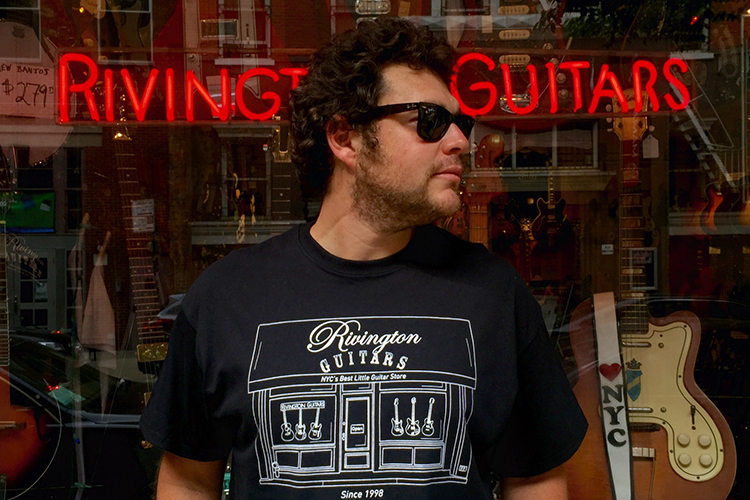
March 13—Howie Statland, Owner, Rivington Music
Rivington Music in New York City only sells vintage guitars. Owner Howie Statland travels around the country stocking his shop, and Music Inc. caught up with him on his way back from the Carolina Guitar Show in Fletcher, North Carolina. The show was canceled due to concerns over the coronavirus.
“They called me the day before and told me that the show was on,” Statland said. “So I was on my way down there, and they called me at like five o’clock and told me they got a call from the governor’s office saying that they had to cancel it. I actually ended up going there and meeting some other dealers at the hotel and buying a bunch of pieces.”
Statland was able to improvise there, but he does anticipate further complications like this affecting his ability to stock his store. He was not, however, seeing a drop off in business yet. Rivington was doing well, having sold a Fender Telecaster and a Gibson ES-335 the previous day.
“Surprisingly, people are coming into the store and calling, and it’s been busy,” he said. “Maybe people yesterday wanted to get out and get the guitar that they’d been looking at before this gets a little crazier, and you can’t go out of your house.”
Statland was starting to observe concern over the situation among his staff. “I have one guy who is working there who’s not there today because he was not feeling well,” he said. “Everyone’s jittery, but I really believe that everyone is going to be OK. We will get through it.”

March 13—Gayle Beacock, Vice President, Beacock Music
Beacock Music was already seeing the coronavirus impact its ability to stock its two locations in Portland, Oregon, and Vancouver, Washington, both of which have since closed temporarily. “I don’t think we’ve seen the worst of that part of it yet because we buy so far in advance,” said Gayle Beacock, vice president of Beacock Music. “I question what’s going to happen if this lingers, that’s for sure.”
Beacock Music is heavily active in the school music market, and Oregon had closed schools the previous Monday, with school band performances canceled as well. That, along with a potential decrease in foot traffic, concerned Beacock.
“We are in the retail business, and people aren’t leaving their houses. That’s a problem,” she said. “We’re hoping we’ll see an uptick in our online sales. I saw a big pile going out today, so that’s a good sign.”
Beacock expressed optimism that the worst of the situation may be over, but stressed that even in the wake of the pandemic and the associated economic effects we may face “a new reality.” She said, “It’s just a big ripple down. It’s really tough.”
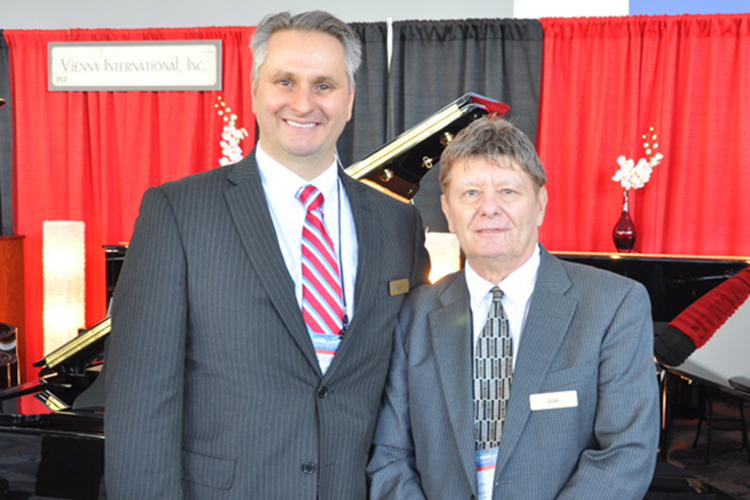
March 13—Basilios Strmec, CEO, Joe DeFio, Executive Vice President, Vienna International
Vienna International distributes Petrof, Emerson and Hailun Pianos, among other products, and has its staff scattered all over the country. It sources product from China and the Czech Republic. It also has a retail store in Bellevue, Washington, an early epicenter of the outbreak of coronavirus in the U.S. As such, it’s been impacted by coronavirus on multiple fronts.
CEO Basilios Strmec shared that Vienna International’s retail store had “essentially zero traffic for the last two weeks. In fact, we have downscaled operation to one person only being at the store because there’s just nobody coming in.” The store had moved to opening by appointment only.
The company’s situation in China was frozen as well. “We were planning on the factory delivering about 10 containers starting February 5,” he said. “Of course, this was in preparation to deliver all our NAMM orders. The factory stayed closed until last week, and that means we’re significantly behind in deliveries of containers.”
Joe DeFio, executive vice president at Vienna, said its dealers were “getting beat up pretty bad. It’s devastating.” But, he was still optimistic. “Right now, things have slowed to a grinding halt, but our industry has a tendency to balance out, especially in the digital and acoustic piano end of it,” he said.
Strmec drew a clear distinction between the threat of coronavirus itself and the larger effect of reaction to it. “The virus itself is not the big issue in the room. The primary issue is not the danger,” he said. “The danger is the damage that comes from the reaction to that. If they’re able to calm folks down and just lay low for, I think, three months at most, the country will come out just fine.”
While Strmec doesn’t want businesses to be destroyed by this situation, he did anticipate consolidation in the MI industry post-coronavirus. “There’ll be lots of business wrapped up that are going to be there for the taking at that point,” he said.
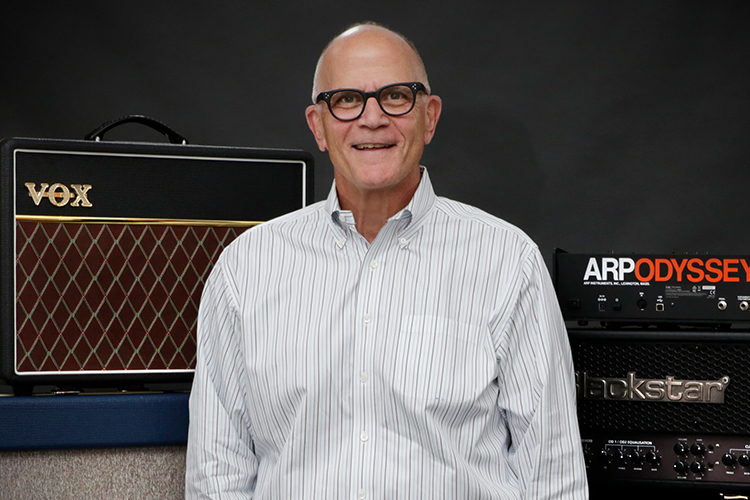
March 17—Joe Castronovo, President, Korg USA
Over at Korg USA, Joe Castronovo, the company’s president, lamented the coronavirus situation, but said his company would get through this.
“We are dealing [with] unprecedented times right now, and we are waiting to see what will happen next,” he said via email. “Not really a great position to be in. However, it could always be worse.
“We have implemented many of the CDC and WHO guidelines regarding social distancing and have many of our employees working from home. Ten years ago, it may not have been that easy, but now it keeps the business going. We are still shipping, and retailers are still ordering.”

March 18—John D’Addario III, CEO, D’Addario
D’Addario has gone so far as to appoint a Covid-19 task force that meets multiple times a day to continually manage what it views as a fluid situation. It pays strict attention to CDC and WHO recommendations, as well as local legislative mandates.
As coronavirus began spreading, the company took swift steps to keep its workforce connected. “Our IT team rallied to provide the majority of our global office staff the tools they need to sufficiently work from home, which most have now for nearly a week,” said John D’Addario III, CEO of D’Addario. “The challenge we have is that we are a manufacturing and distribution business. To ensure the safety of our factory and distribution workers, we have strict cleaning and disinfecting protocols in place and we have implemented several measures to ensure social distancing.”
March 18—Sammy Ash, COO, Sam Ash Music
“It’s pretty bad,” said Sammy Ash in a voice mail on the situation. “And it’s getting worse. We’ve already had one forced closure and one forced [layoff of] 50% staff. Who knows what else is going to happen. Feel free to call me back. If you don’t get me it’s because we’re forced to move my son out of college today.”
March 20—David Mandelbrot, CEO, Reverb
Online MI-sales platform Reverb was, of course, aware it was increasingly essential as retailers forced to close their doors due to the coronavirus shifted their focus to online sales.
“We take very seriously the role that our marketplace plays in the lives of music retailers, and right now, we’re focused on doing everything we can to ensure that things continue to run smoothly on Reverb so sellers can keep their businesses humming,” said newly installed CEO David Mandelbrot. “The best guidance we can provide to sellers is to be especially attentive to their online customers during this time and to over-communicate with buyers about the status of their orders. We have found that musicians are still very eager to buy new musical gear even with the current situation.”
That being said, Reverb is asking buyers and sellers to be flexible with each other as members of its community face challenges due to coronavirus. “We are all in this together,” he said.
Mandelbrot noted suppliers making adjustments during coronavirus, pointing to Taylor Guitars, which had just announced that it was authorizing all dealers to sell its products on Reverb, something it only allowed select dealers to do previously.
March 20—Rand Cook, Owner, Candyman Strings & Things
Rand Cook spoke to Music Inc. while in quarantine in his New Mexico home. As the owner, with his wife Cindy, of Candyman Strings & Things in Santa Fe, the Cooks were forced to shut down after a great day in their store had an unexpected outcome.
The first two months of the year had been “absolutely fantastic” for the Cooks, and March was proceeding strongly as well. Then, on March 10, famed actor Idris Elba stopped in the store.
“He was a super nice guy,” Cook said. “He bought a couple of guitars and a couple of other things. And I visited with him very briefly. I had my photo taken with him, so I actually had contact with the guy.”
Shortly after the visit, Elba tested positive for the coronavirus.
“Of course we had, all over Facebook, my picture with Idris Elba from the week prior,” Cook said. “So, it was an instantaneous decision that we literally had to shutter the operation that moment for the health and safety of my staff, for us, for everybody.”
Cook said he could still take Reverb orders and ship, but was not taking on any new inventory.
“We’re not gonna open it back up on the 1st of April,” he said. “Things are going to continue to shut down until this thing is under control. I’ll be honest with you. This thing could kill off a ton of businesses, and it probably will.”
He and Cindy had the difficult task of laying off their entire staff, a situation that has happened in hundreds and perhaps thousands of music stores across the country.
“The reason for that is I could continue to pay my employees for a month or two, and then we’re out of business for good,” Cook said as his voice cracked slightly. “Or, I could lay them off, and they can access government money and get unemployment.”
For the Cooks, it was doing what was best at the time for their employees, and for the business.
“So we’re dealing with it,” he said with a shrug. “This is business on a ridiculously epic scale. And there’s no way to plan for that.”
Music Inc. will continue to cover the coronavirus pandemic as the situation evolves and deeply impacts our way of life and our industry. Look for content in future issues that reflects how MI is surviving and innovating during this difficult time and shares best practices on doing the same in your business. MI






